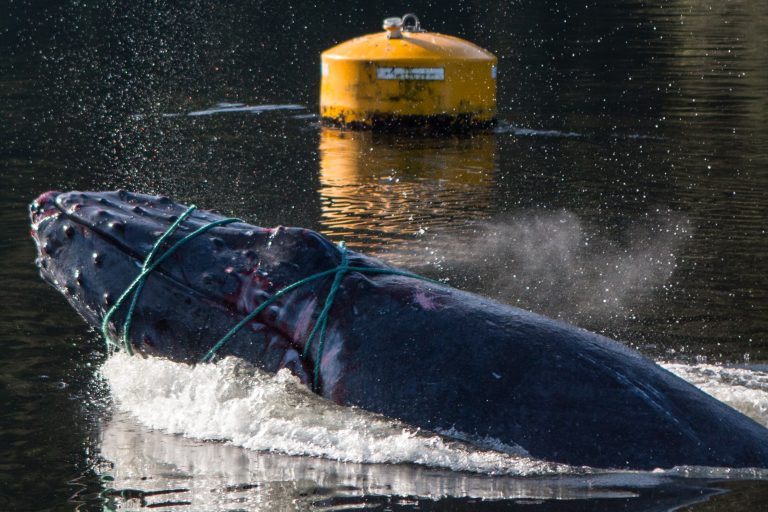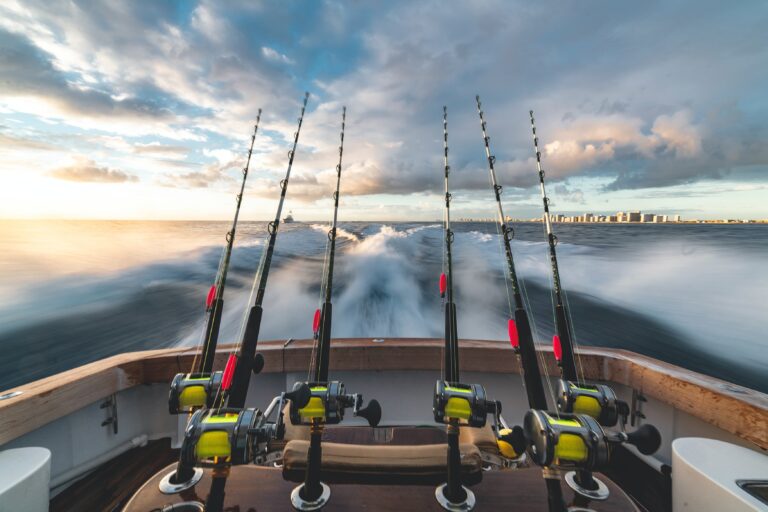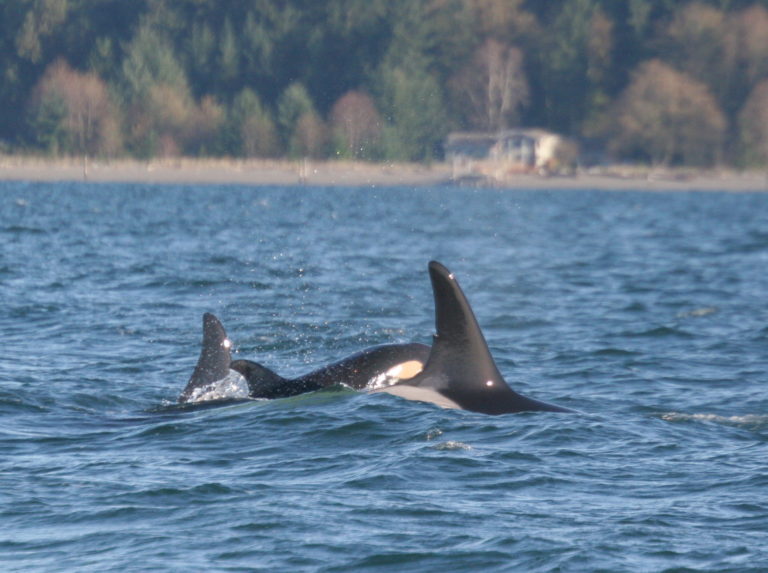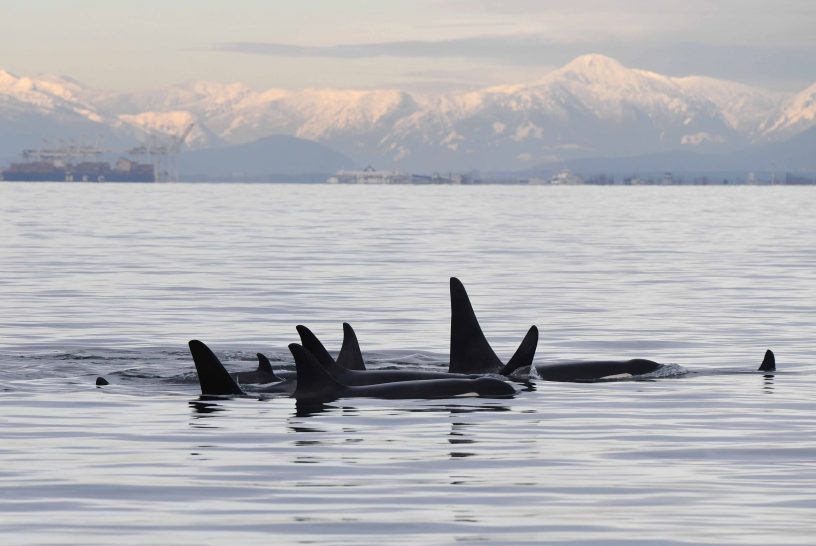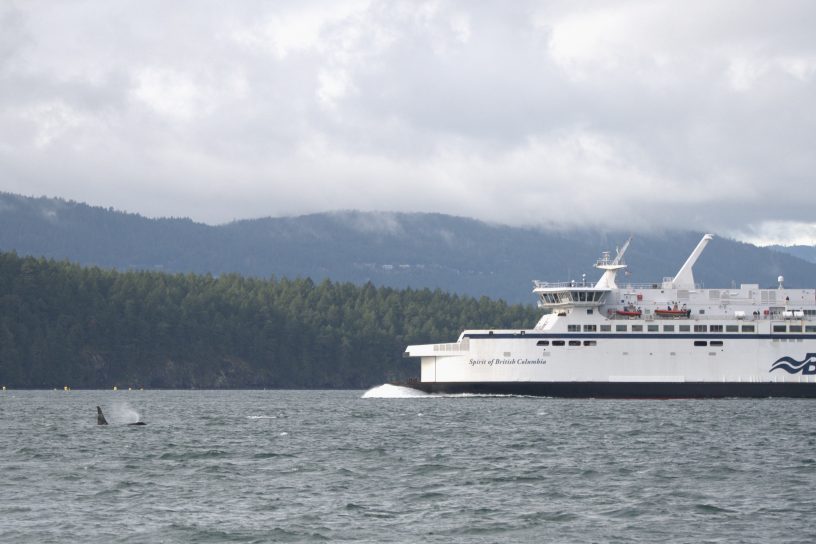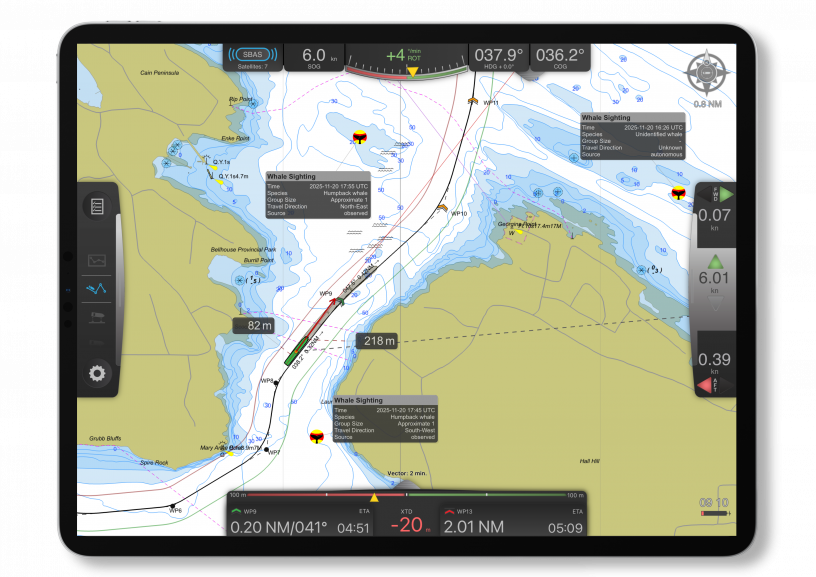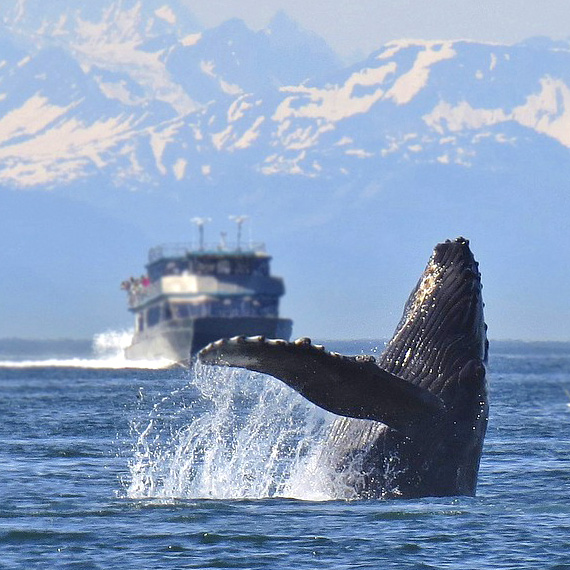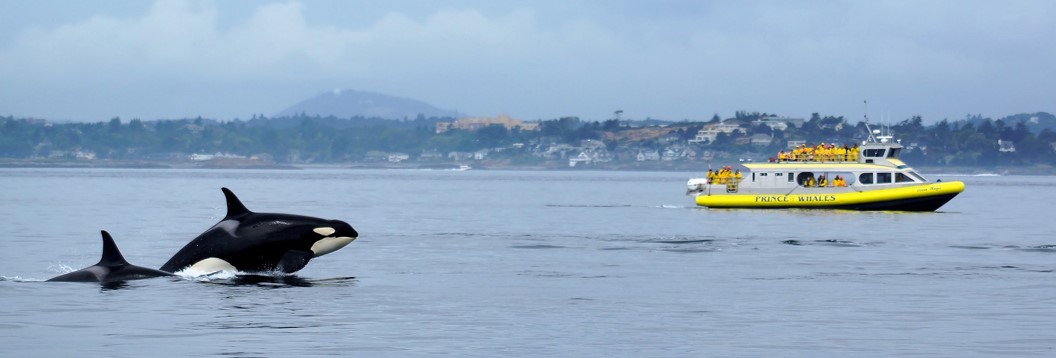
And the Award for Top Cetacean Reporter Goes To…
By: Aaron Purdy and Sarah Patton, at Ocean Wise’s Southern Vancouver Island Research Initiative
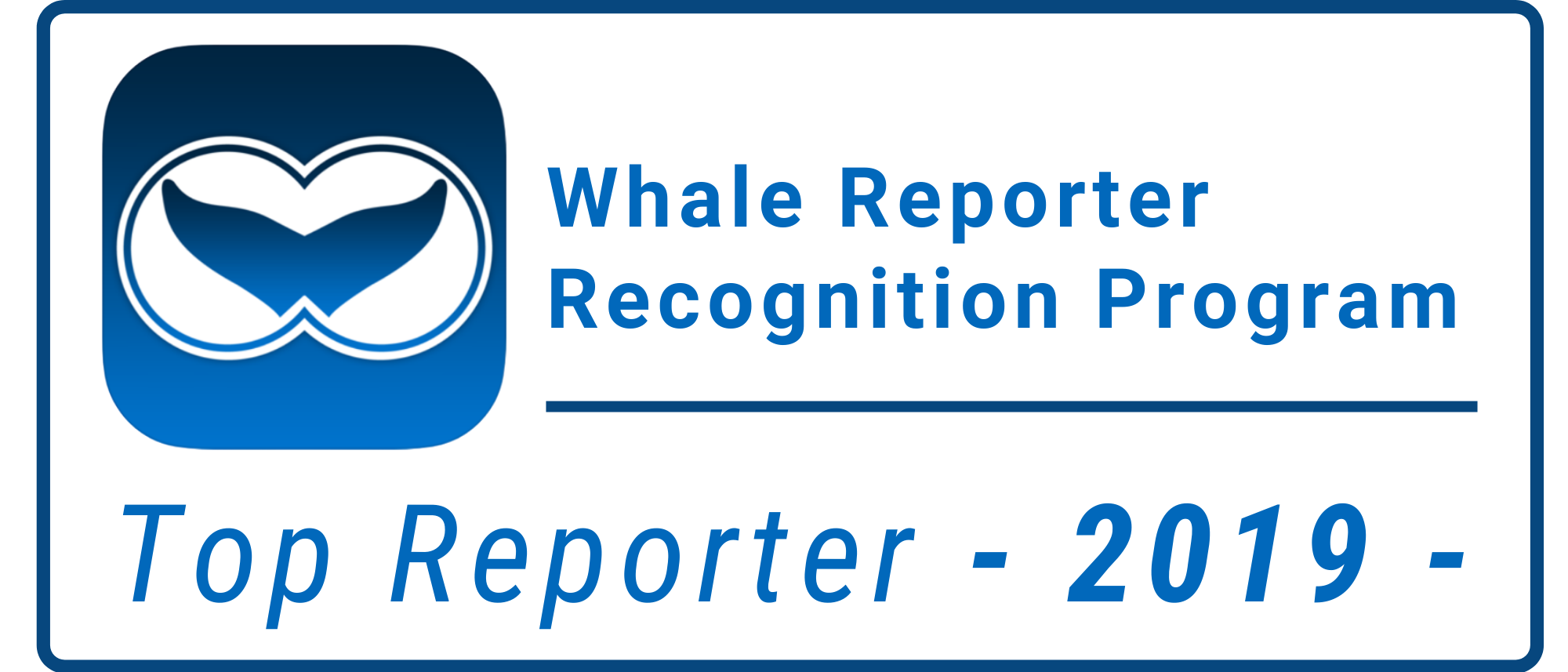
We’ve crunched the numbers and the results are in! Since its inception in 1999, the B.C. Cetacean Sightings Network (BCCSN) has received over 120,000 verified citizen-provided cetacean reports from across British Columbia and more recently, from Washington State. In 2019, our network of over 7,000 BCCSN reporters submitted a whopping combined total 9,797 reports! Excitingly, we launched the Whale Reporter Recognition Program in July 2020 to celebrate the dedication of our most committed cetacean reporters. The Whale Reporter Recognition Program was created to show our appreciation for the devoted citizen scientists who report their sightings of cetaceans to the BCCSN.
For 20 years, the BCCSN has collected sightings reports of whales, dolphins, porpoises and sea turtles from a wide variety of sources—whale watching naturalists, coast guard personnel, lighthouse keepers, commercial mariners, recreational boaters, and coastal citizens just to name a few. Though our reporting sources are diverse, they share a common trait—their ongoing commitment to ocean conservation. For that, we and our local whales are grateful!
Keep a look out for organizations displaying a Whale Reporter Recognition Program decal or certificate (pictured below), highlighting their success in achieving Top Reporter Status!
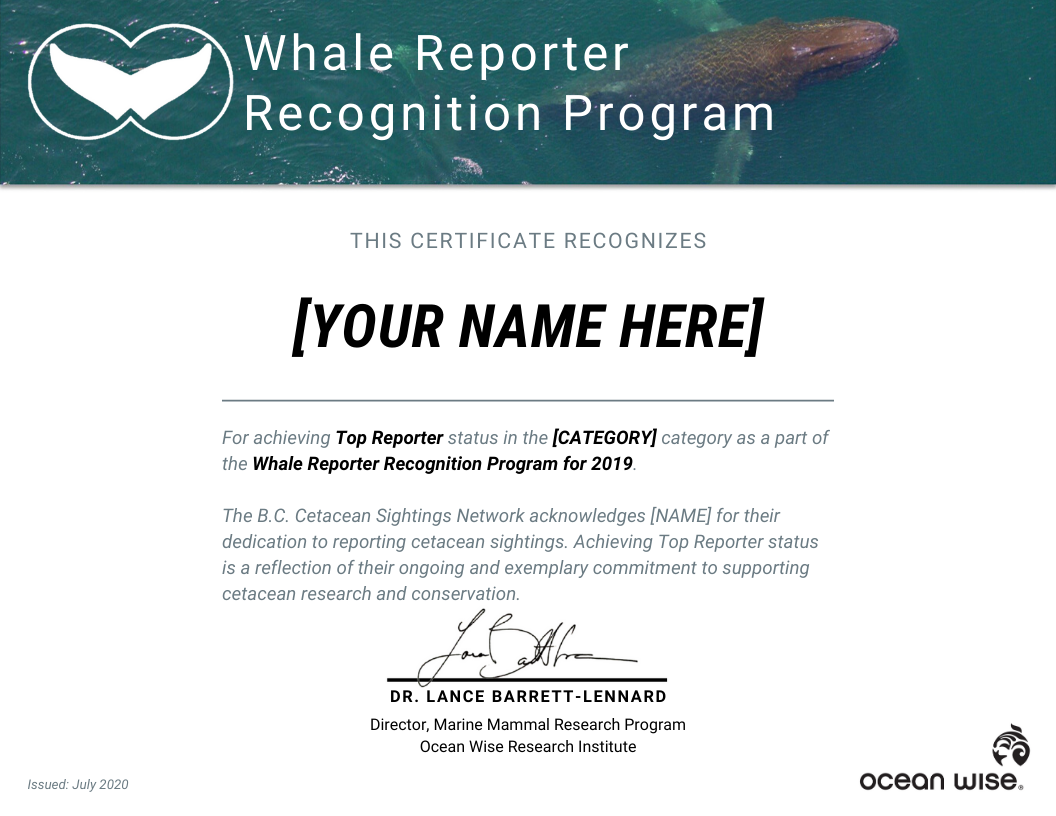
By sharing cetacean sightings, BCCSN reporters are helping protect whales in many ways. Data from the BCCSN inform a variety of research, management and conservation initiatives in our local waters. Sightings reports are used to monitor the distribution and health of cetacean populations, to inform the establishment of marine protected areas, to identify areas of high risk, and to guide targeted outreach and mitigation efforts. Importantly, sightings reports also help to create safer waters for cetaceans and sea turtles by informing the WhaleReport Alert System, which uses data submitted to the BCCSN via the WhaleReport app to alert captains and Ppilots of large commercial vessels about whales in their vicinity. With greater awareness of nearby cetaceans, mariners can employ mitigative measures to reduce the risk of vessel strike and disturbance, creating a safer, quieter marine environment for whales.
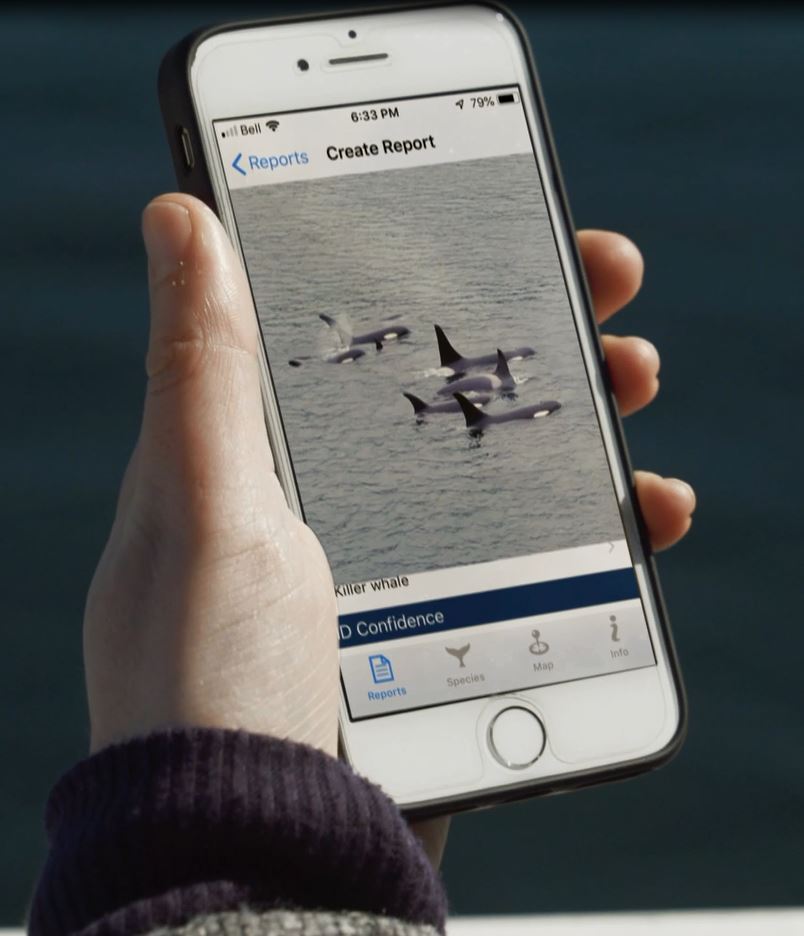
Given the importance of cetacean sightings to conservation, we felt it was important to create a program to thank the dedicated citizen scientists that make the BCCSN’s research and conservation efforts possible. With this vision, we launched the Whale Reporter Recognition Program. Starting this year, we will annually recognize the reporters that stand out as exceptionally dedicated and consistent in providing sightings reports. To celebrate them and to allow their achievement to be shared publicly, Top Reporters are awarded “Top Reporter” window and e-decals to highlight their status in their places of business and online, a Top Reporter certificate, and exposure through various media sources including the BCCSN’s WildWhales website (www.wildwhales.org/recognition).
If you would like to become a Top Reporter, now is the time to start submitting your cetacean sightings! During the summer months, humpback whales migrate north from their wintering grounds in Mexico and Hawaii in large numbers. In addition, the Salish Sea is designated as critical habitat for the Southern Resident Killer Whales and were reported to have returned to the area just this past month! And have no fear- you don’t need to have a boat to be able to spot and report cetaceans. There are many places across the province where you can easily spot whales, dolphins, and porpoises from shore. For a list of great places to visit for land-based whale watching opportunities, check out the Whale Trail BC, another BCCSN initiative.
If you would like to contribute to the BCCSN’s research and conservation efforts, make sure to report your cetacean sightings today! The simplest and most effective way to report your sightings to us using the BCCSN’s WhaleReport smartphone app. Free to download, WhaleReport makes it easy to submit your cetacean sightings at any time. You can also submit reports at www.wildwhales.org/sightings or email [email protected].
For a list of our Top Reporters, please visit www.wildwhales.org/recognition.
Posted July 24, 2020 by Wild Whales

